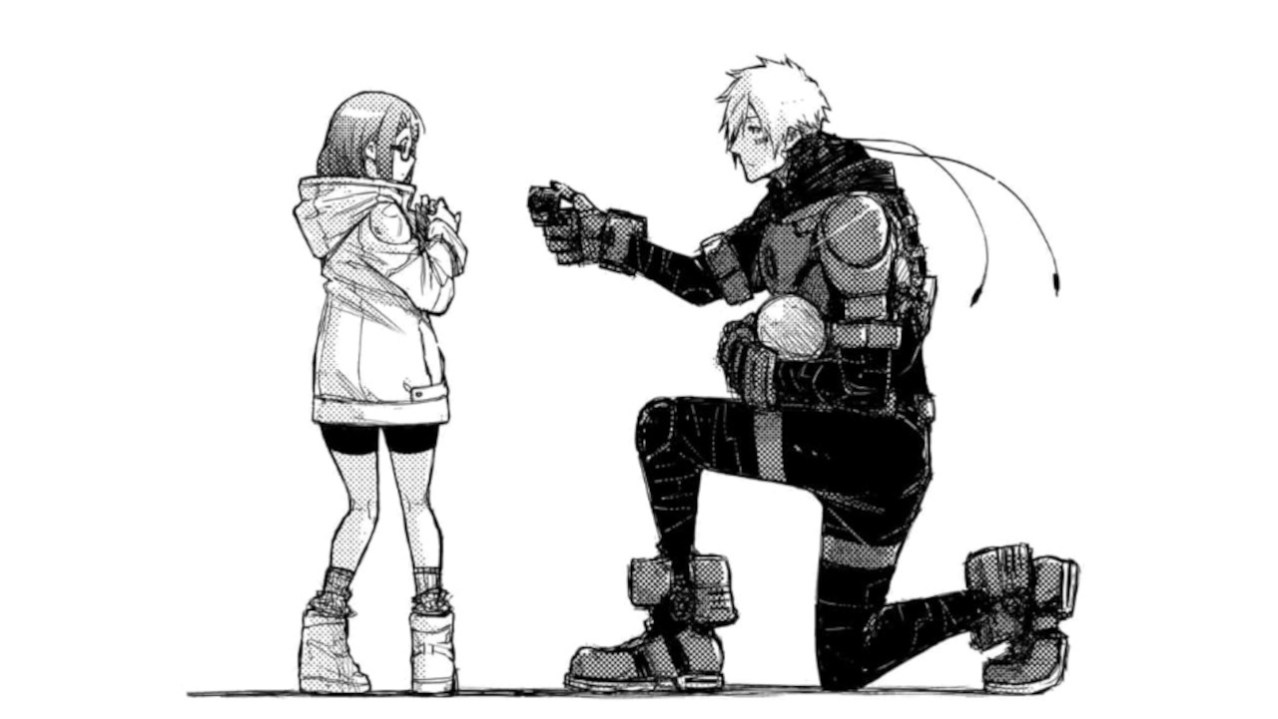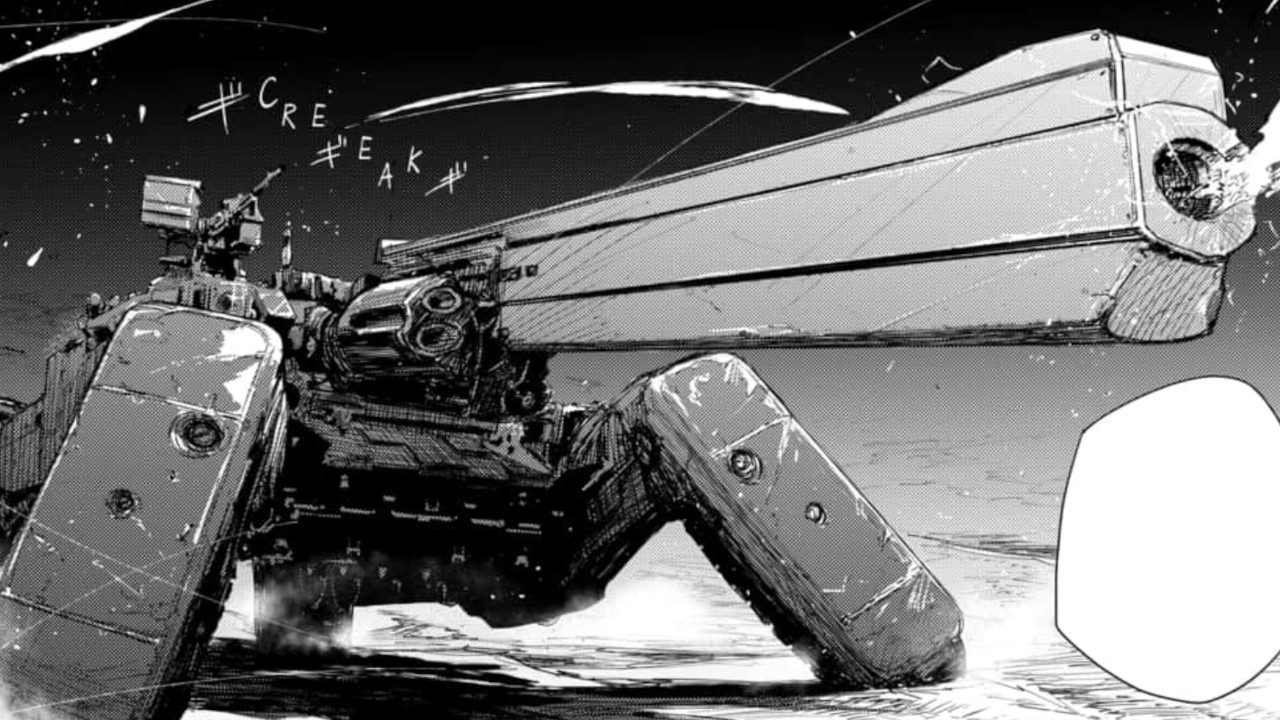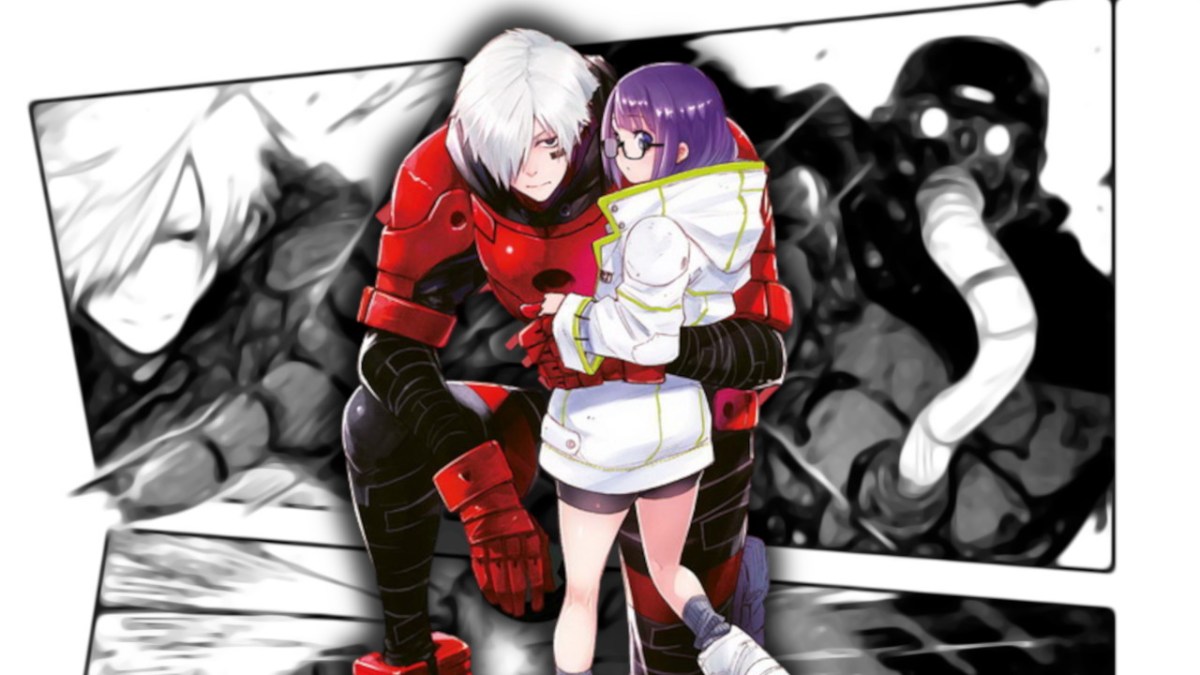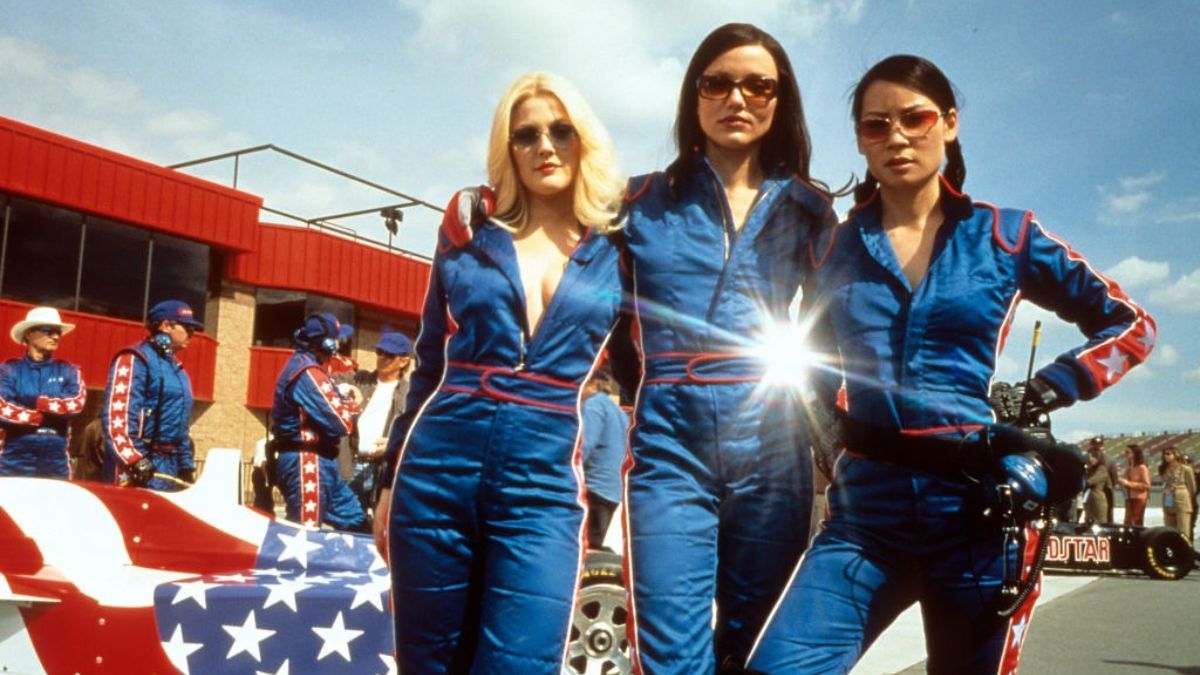Good Mecha Sci-fi manga has always been available, but sometimes it’s all about the right type of appeal. It can be incredible to see detailed artwork of future tech robots clashing with a dreary vision of what warfare could eventually become. But it can also be difficult to draw prospective readers in and shrug off the limitations of a niche genre. What Heart Gear sets out to becomes clear within the first few pages, and thanks to a complimentary copy from VIZ Media, I got to review what was offered with Vol. 1.
Humanity Can Be Perplexing From an AI Standpoint

Heart Gear Vol. 1 introduces us to a postapocalyptic landscape ravaged by war and seemingly devoid of human life. That is, except for the plucky young Roue, who lives with her beloved robotic companion Zett (also known as a Gear), content to survive and provide biofuel for the totally-not-Baymax robot. They even find another Gear in the wild, Chrome, and introduce him to their lifestyle.
Related: Review: Akane-banashi Vol. 1
All seems well for Roue and company. They’ve been relatively safe, and we get to see how much Zett, an AI-powered robot, grows to love his child companion and her quirks. Chrome, puzzled by her behavior such as wanting to cook food that’s already perfectly nutritious or wear multiple layers of clothing, or even just how she experiences joy, offers an interesting AI-centric perspective.
Humanity can be perplexing from an AI standpoint, something explicitly planned out by series creator Tsuyoshi Takaki. Roue herself was named by Zett, after the French word for “wheel” or “gear” further suggesting a stronger focus on the Gear Chrome’s perspective. Roue’s endearing antics grow on Chrome as well, but not without tragedy striking.
Heart Gear Reminds Us A Good Mecha Story is Equal Parts Woven and Mechanical

After a tragic attack occurs where a rogue (Insane) Gear destroys Zett’s body leaving Roue devastated, Chrome’s true form emerges from the cylindrical robotic body thought to be his own. A highly advanced humanoid, Chrome proves to be an incredible fighter capable of taking on seemingly any Gear with ease. With everyone encountering him sensing danger as his allegiances are not specifically laid out, Chrome searches to determine his purpose, while fiercely protecting Roue.
It’s in this storytelling that we see clear instances of the Hero’s Journey in the early portion of its 12 stages. Chrome is discovered in a suspiciously ordinary world, despite it being post-apocalypse, thanks to Roue’s blissful ignorance, and his Call to Adventure is pretty clear, accented by some insane 2-page spreads of epic mech designs. It’s a dangerous world out there, and his stage 3 is met with a distinctly AI response: is it a refusal of the call, or more an initial lack of understanding?
The point here is that Heart Gear approaches storytelling in a fairly structured fashion, yet avoids too many lofty or pretentious tropes of sci-fi or mecha stories. Yes, it’s a bleak future ravaged by machines of war after nations crumbled while corporations rose. But it doesn’t get on a soapbox or get too focused on the techno jargon.
Heart Gear reminds us a good mecha story is equal parts woven and mechanical. There’s a flow, but also a sense of understanding, a sweet science. While there is plenty of commentary to be found in the series, it’s primarily about a Gear discovering his purpose and guarding a spirited young human, possibly the last of her kind.
The Art Was So Strong I Couldn’t Put the Book Down

Heart Gear has some crazy-cool artwork going on. From highly detailed, wonderfully shaded environments, to incredibly designed characters with cool-looking adversaries and mechs, the world felt alive yet appropriately bleak. The 2-page spreads of the action or even just a sophisticated Gear design made this a real page-turner, and that’s not even counting when we meet other humanoid Gears.
For my review of Heart Gear Vol. 1 I found that the art was so strong I couldn’t put the book down. While I can’t get over how similar Zett looks to Baymax, his body really only appears in the first couple of chapters so I can learn to live with it. There are also other designs that are great, if perplexing. Drawing maid Gears with a high sex appeal, then calling attention to the suggestive angles, comes off less self-aware, and more just shameless in an awkward sense.
But Does it Shake the Niche Problem?
Heart Gear has strong art, a compelling if predictable premise, and an interesting focus on AI characters, using their outsider perspective in surprising ways to humanize them. It was also quick to pick up and read, and while it’s substantial with plenty of details worthy of a re-read, it speaks to how approachable it is compared to other Mecha Sci-fi manga out there.
But does it shake the niche problem and net wider appeal? I like to think so. Heart Gear has plenty to offer while still feeling thoroughly like a Mecha manga, with action, charm, and killer art throughout.
This review was made possible by VIZ Media, along with a complimentary copy of Heart Gear Vol. 1, available physically and digitally on August 15, 2023.












Published: Aug 16, 2023 01:45 am